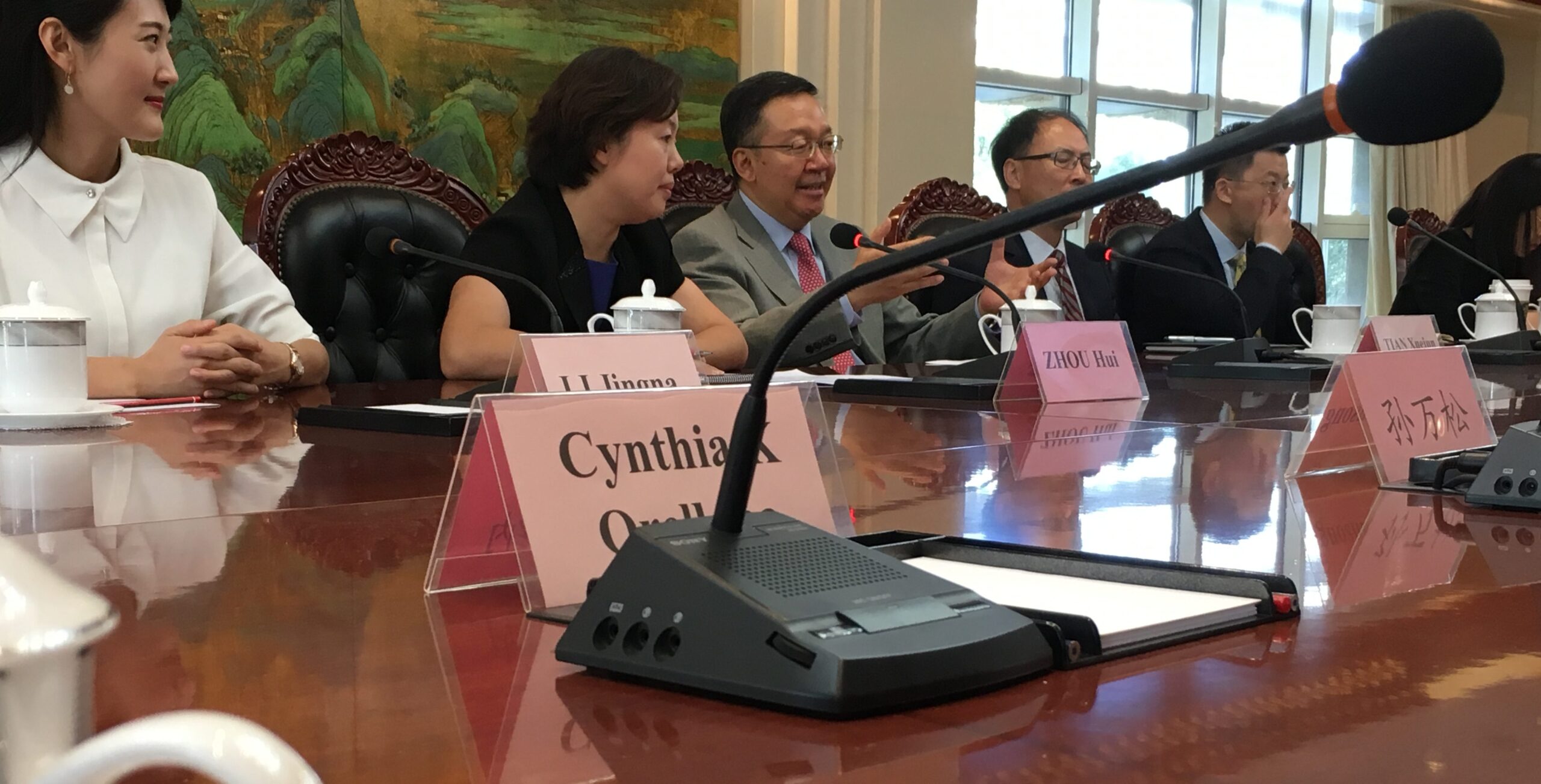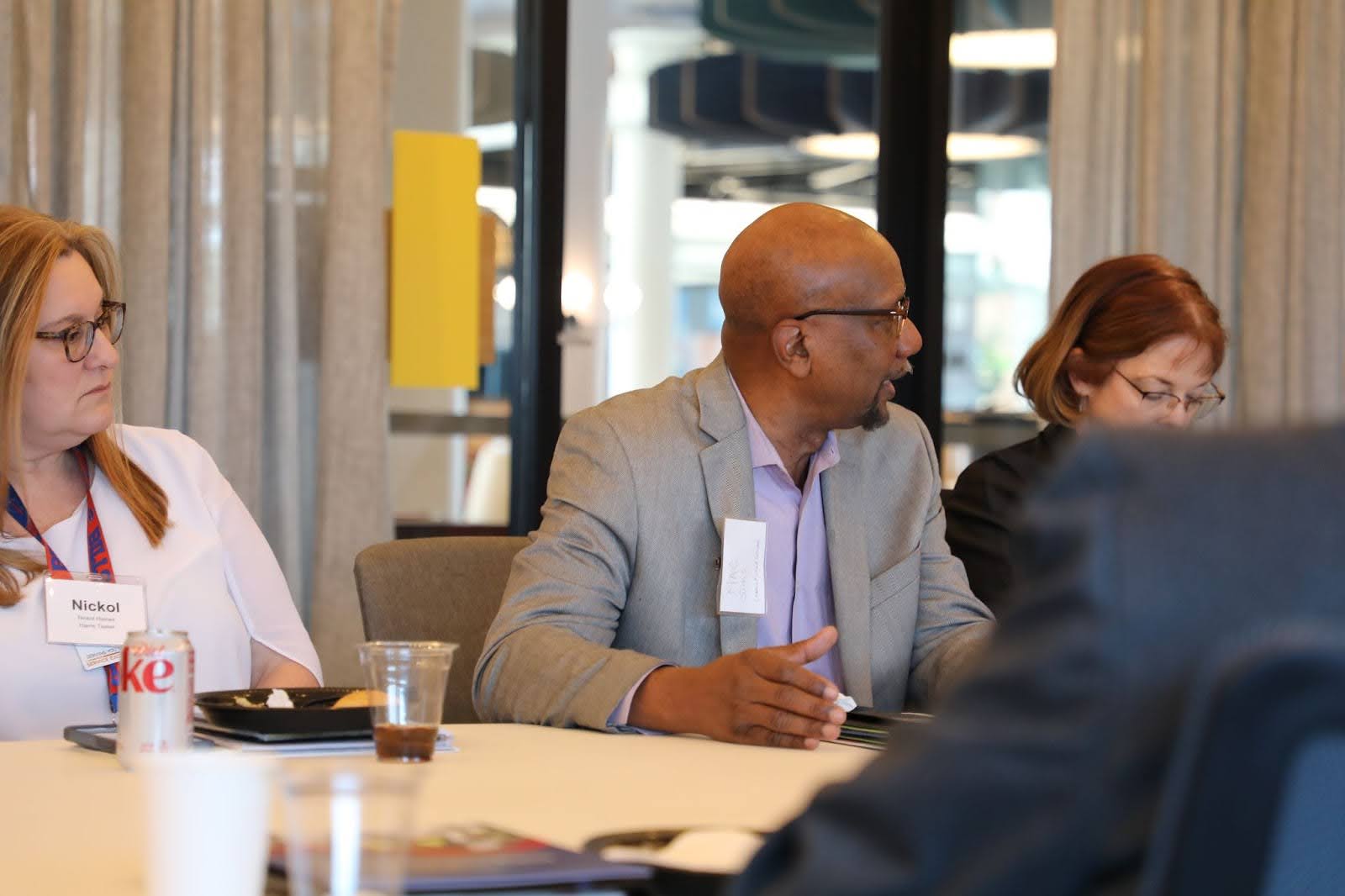Greetings from China | Day 4

 IEI Director Leslie Boney is traveling this week with the Association of Public and Land-grant Universities to China, to talk about APLU’s Innovation and Economic Prosperity Program, which NC State University is participating in.
IEI Director Leslie Boney is traveling this week with the Association of Public and Land-grant Universities to China, to talk about APLU’s Innovation and Economic Prosperity Program, which NC State University is participating in.
Day 4:
“Make no little plans. They have no power to men’s blood and probably themselves will not be realized.” – Daniel Burnham
Big news in China this week: the upcoming Communist Party of China “National Congress” next month. As a public policy nerd, I find it pretty cool to think about how many eyes will be on the party leaders as they try to hammer out the plan that will guide 1.4 billion people.
The early reports of what they will be working on are ambitious. There will be some throat-clearing rhetoric on the plans to basically make Marxism great again. But then there will be a hard and tough set of clear goals and objectives. And if the past is any indication, China will meet them.
Ambitious economic growth targets will continue (goal is to double GDP and per capita income by 2020). The Party plans to “eradicate poverty”and root out corruption (so far this year, 40,000 government officials have been penalized for violating “austerity” laws). There are plans for reduction of rural-urban disparity and plans to increase the size of farm holdings. The party will continue aggressive pollution strategies (yesterday, 5,763 public officials were “punished” (not sure what that means) and 32,000 companies were fined for not meeting government pollution reduction targets).
And the Party is very clear that the policy of encouraging a migration from a low-skill manufacturing economy to a high-tech innovation economy will continue. In our delegation’s meeting today, China Vice Minister of Education Xue Tian explained the policy, one that is aimed at growing new domestic entrepreneurs and recruiting international entrepreneurs. “The United States has experience in innovation and entrepreneurship,” he said. “China has lots of young people…and the 21st century belongs to young people.”
Say what you want about the Chinese government, the Party’s previous 12 “five-year plans” have been remarkably successful in their ambition and execution. They might pull off this one too.
Contrast that with North Carolina’s “long-term planning” function. Since the late 1980’s we haven’t had one. Governors come in with announced plans for their four-year terms, but it takes a while for the new team to learn the ropes, the General Assembly has different ideas, and late in the term governors find themselves scrambling to accomplish some part of their plan or are seeking to develop a new “plan” for the next four years. The General Assembly has a different challenge: Even with strong leadership, beginning on a public policy that will take even five or ten years to show results is risky. With two-year terms, each member has to worry about taking actions that show immediate results.

I went to the Great Wall of China yesterday and started trying to imagine being the person making the argument to the Emperor to build it. It’s 700 BC and everybody is sick and tired of the ceaseless set of foreign powers invading from the north and west. You get an audience with the Emperor to share a great new idea:
Public Servant: “Thanks for seeing me Emperor Qin.”
Emperor: “No problem; sorry you had to wait two years for an appointment. What’s this big idea?”
PS: ”I want to build a wall.”
E: “How big a wall are you talking about?”
PS: “Well, when it is finished, it will be about 3,000 miles long.”
E: “How much will it cost?”
PS: “Hard to say. With current costs, about a gazillion.”
E: “And when will it be finished?”
PS: “About 2300 years from now.”
E: “What’s the proof it will work? Has anyone else done this at this scale?”
PS: “There’s no data, sir.”
How the conversation apparently ended in 700 BC:
E: “Well the concept makes some sense. It’ll be hard, but it could work. Why don’t you start by meeting with my buddies over in central planning and we’ll see if we can work out the details?”
How the conversation might end today:
E: “Hmm, so I will get no credit, paying for it will take a huge amount of our kingdom’s assets, and it might not work. Is that right?
PS: “Yes, but we don’t really have a lot of other ideas on the table right now, and in a few years it will at least inconvenience the invading hordes. And in a couple of thousand years you could be hailed for your vision.”
E: “Thanks for coming by. I think we’re going to go with the pothole restoration project instead. Don’t let the gate hit you on the way out. (Sheesh, Ying, who let this guy in? We’ve gotta do a better job screening these guys.)”
Nobody could blame the Emperor for that decision, right?
Machiavelli wasn’t thinking about the Great Wall of China when he wrote The Prince, even though construction was finishing up about the time he was writing. But he laid out the political problem any new long-term project has when it walks in the door: “There is nothing more difficult to plan,” he wrote, “nor more dangerous to manage than the creation of a new order of things. Whenever his enemies have occasion to attack the innovator they do so with the passion of a partisan, while the others defend him only sluggishly, so that the innovator and his party alike are vulnerable.”
Thinking differently, and long-term, about the problems we face requires vision, confidence, political brilliance and the ability to convince groups of people with perfectly reasonable sounding objections to do the new long-term thing rather than any of the dozen old short-term things.
During his term, President Lincoln called for creation of a National Academy of Sciences to ensure that he got objective, unbiased data and long-term projections he and others could draw on and plan around. He never got a chance to draw on that knowledge, but the Academy has persisted in various forms since, thinking and advising and acting long-term, today with a healthy mix of private sector and academics. The National Academy continues to this day, with no one on government salary – it’s a group of people passionate about addressing our greatest challenges.
What would a state “academy” in North Carolina look like, a group of people passionate about the long-term future of our state, urging us to develop real plans – five years, ten years or longer? Texas and Washington state have set up one. Maybe it’s our turn.
It’s not a completely new idea. We launched a thing called the NC Progress Board in the late 1990’s, a group charged with attempting to set long-term goals for the state and tracking progress in achieving them. But because it was government-supported, it eventually lost funding when data disagreed with politics.
The charm of the “academy” approach is that it operates independent of, but in communication with, government. Government doesn’t have to listen, but the ideas will be out there, available to policy makers; conversation on tough long-term issues can begin.
We wouldn’t have to start with 2300 year plans. How about we start with 23 years?
(Above image: China Vice Premier speaking to US delegation in Beijing.)
<– Greetings from China | Day 3 Greetings from China | Day 5 –>


